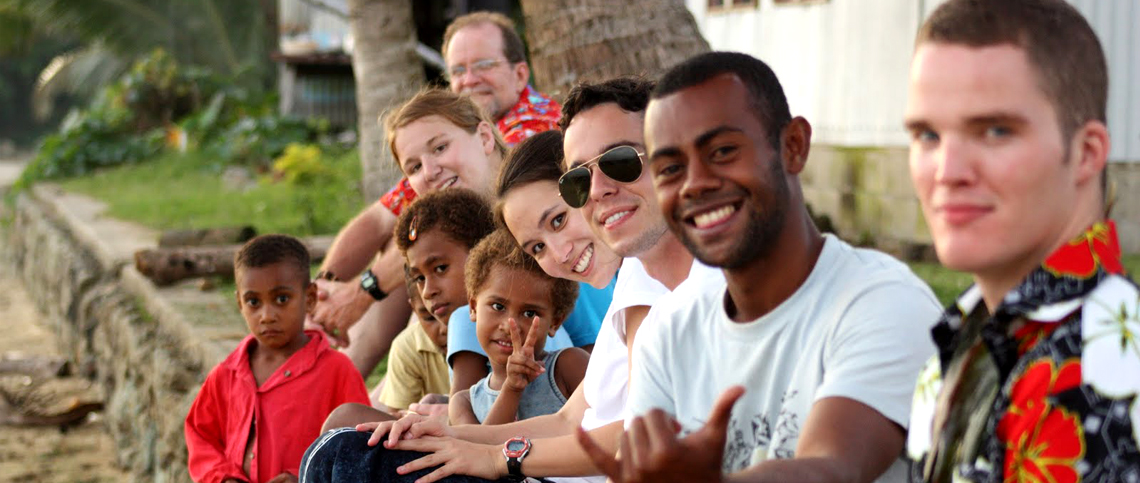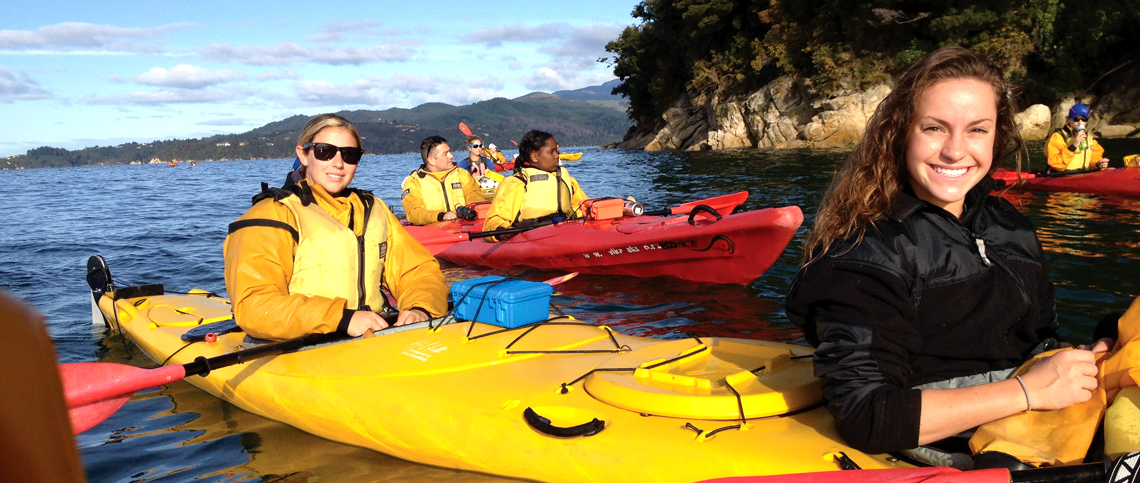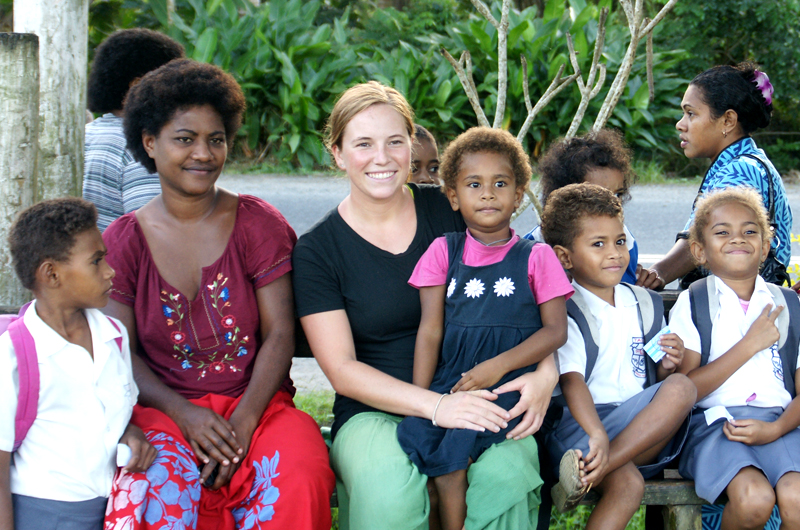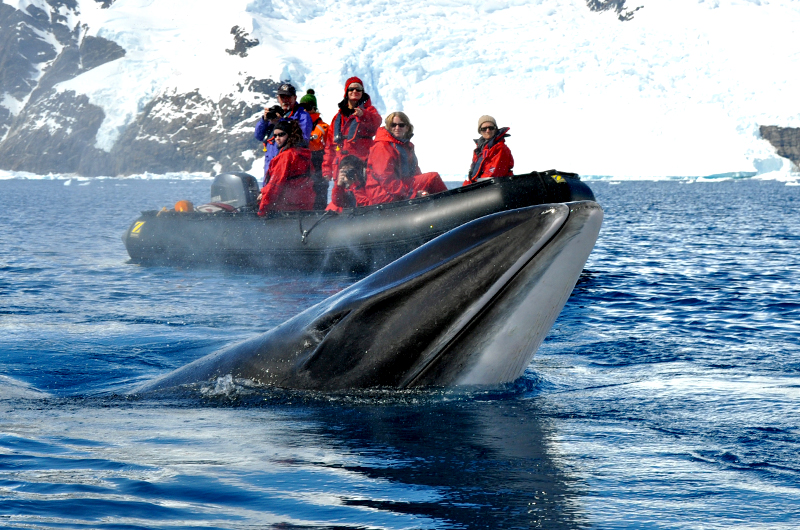
Students and locals – Fiji
Years of health and safety experience
The health, safety, and security of your student participants is likely your number one concern in preparing to run a faculty-led program in the South Pacific. It is ours as well! Working with an in-region provider is the best thing you can do to implement best practices in study abroad risk management. And for over 30 years, AUIP has been providing programs with a proactive, detailed risk management structure. When you work with AUIP, your programs are supported by extensive emergency action plans, safety reviews, an on-site orientation presentation, 24/7 emergency call support to in-region AUIP staff, and student and faculty program handbooks. These health and safety services complement and supplement home university health, safety, and emergency protocols, leaving faculty to focus on academic planning. Our team has years of industry experience focused specifically on faculty-led programs and we work closely with our partner institutions to deliver special attention to the health, safety, and overall well-being of your students.
Our risk management strategy
Overall, AUIP aims to support faculty by reducing health and safety risks to program participants through a five-part strategy:
- Identify risks: AUIP has spent a considerable amount of time and effort to identify potential sources of risk or exposure to hazards on all of its scheduled events and activities. This has been done over time and through repeating activities and events to be able to identify foreseeable hazards as accurately as possible. AUIP has also taken steps to identify any potential negative consequences that may arise from any exposure to risks or hazards associated with our programs.
- Minimize or eliminate risk: Once a hazard or risk has been identified, AUIP has, in consultation with local experts, designed recommended risk reduction strategies for its events and activities to either reduce risks to acceptable levels or minimize them entirely. It also involves minimizing any potential negative consequences that may arise as a result of exposure to risk. In the event that it is impossible to reduce any foreseeable hazard or risk to an acceptable level, then AUIP has eliminated that event or activity from its programs.
- Disclose and Educate: AUIP operates under a policy of full disclosure. This entails making certain that all institutions are given information on the hazards or risks that may be associated with any given activity or event, so that they can pass this information on to program participants to help them make informed decisions about their participation. The AUIP Program and Faculty Handbooks also provide extensive information to participants related to health and safety. In addition, AUIP continuously educates and trains its staff on how to handle risks and emergency situations.
- Plan: AUIP has a recommended Emergency Action Plan and recommended Emergency Action Protocols that can be implemented in the event of an accident, injury, sudden illness or emergency that involves immediate action, in cases where the institution does not have its own emergency plans and protocols.
- Review: AUIP annually reviews its risk management strategies and procedures, and an important aspect of this review is the incident report forms that we receive from faculty for any injuries, accidents, emergencies or ‘near misses.’ These incident report forms are kept on file in the AUIP accident register and are used to evaluate and improve the existing risk management plan.
Balancing cost-effective measures with an eye for strong risk management practices, AUIP has been a valuable partner for us in facilitating our Australia and New Zealand programs.
Sarah Malloy – Study Abroad Office, University of Arkansas

Students kayaking in Abel Tasman National Park – New Zealand
Overseas medical insurance
Please note that AUIP requires that all program participants and accompanying faculty or personnel have international medical insurance for the duration of their program. The coverage must include medical emergencies, evacuation, and repatriation. Thank you for your assistance in arranging adequate coverage for all participants; we will ask for the policy information at the time of program confirmation. AUIP also strongly recommends that all participants obtain trip protection and cancellation insurance by the program confirmation date.
COVID-19 Guidelines + FAQ
The COVID-19 pandemic has introduced new considerations for travel and wellbeing, from vaccination to daily health checks to testing requirements. AUIP’s COVID-19 Guidelines + FAQ has been prepared to assist with your program planning for faculty-led travel in the South Pacific in 2022 and beyond. Any questions? Please be in touch!
In an emergency
In the event of an emergency that requires the support of local emergency services (ambulance, fire, police), please first ensure that local services have been contacted for assistance. Local emergency numbers and country-specific contacts can be found here.
AUIP is also on call 24/7 for emergencies throughout your program. For contact information, click here.
Faculty + Staff
Talk to us
Whether developing a new program, studying abroad for the first time, or assisting your student to prepare, we understand you may have questions. Don’t hesitate to reach out!
AUIP DESTINATIONS:
NEW ZEALAND

An isolated island nation in its evolutionary infancy, New Zealand is the most recently inhabited country in the world
AUSTRALIA

Australia is one of the most diverse countries on Earth, both in terms of its landscapes and its multicultural population



